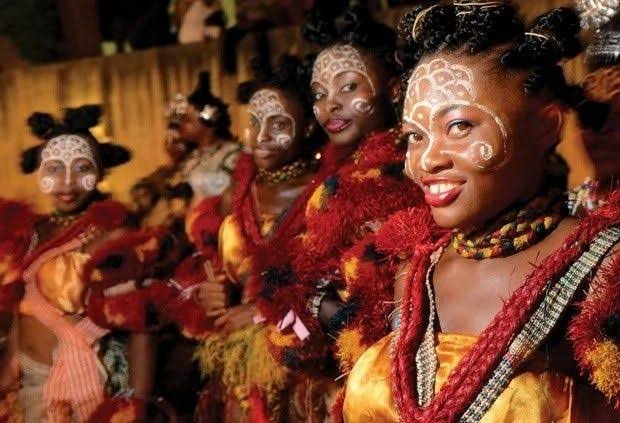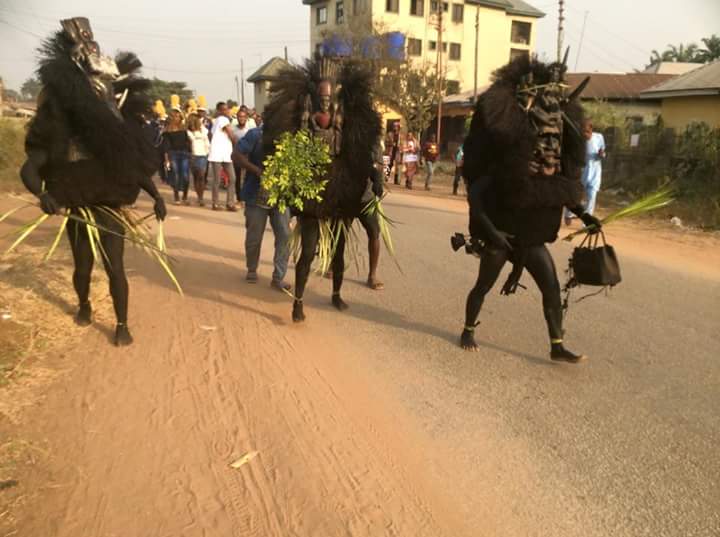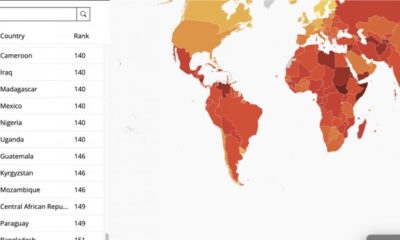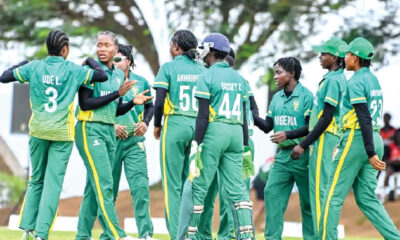Special Features
Captivating facts about the Ibibio tribe in Akwa Ibom State

In this post, News360 Nigeria explores the history, culture and traditions of the Ibibio people of Akwa-Ibom State.
The Ibibio people are an ethnic group predominantly found in the southern part of Nigeria, specifically in Akwa Ibom State.
They form the largest ethnic group in Akwa-Ibom State and fourth largest ethnic group in Nigeria with a population of over 10 million people.
They share close ties with Efik, Annang and Oron people.
History
The Ibibio people are believed to have migrated from the Cross River region and are part of the larger Ibibio-Efik ethnic group.
They have a rich history dating back centuries and have traditionally been known for their fishing and farming practices.
The people are known to be the earliest inhabitants of the south eastern Nigeria.
They are thought to have moved to their current location circa 7000 B.C.
It has been established through evidence that the Usak Edet (Isangele) in Cameroon, where the Ibibio people originally originated, is now home to a small tribe in the Kumba Division of the country.
Population
The Ibibio people are primarily located in Akwa Ibom State in southern Nigeria.
With an estimated population of over 10 million, they are one of the state’s largest ethnic groups.
Language
The Ibibio language which Greenberg (1963) classified as belonging to the Niger-Congo family, one of the largest language families in Africa is widely spoken in Ibibio land.
Occupation
The Ibibio people were traditionally farmers and fishermen who raised crops like plantains, yams, cassava, and vegetables.
They participate in fishing, hunting, weaving, and carving on an equal basis.
Today, many Ibibio people are also engaged in various professions such as trading, civil service, education, and entrepreneurship.
Beliefs
The traditional belief system of the Ibibio people involves the worship of deities and ancestral spirits.
The Ibibio people believe in and worship Abasi Ibom, the ultimate God, who is said to live in the sky.
They hold that God controls all social interactions. For example, Abasi ukod governs in-laws, Abasi Ayeyin governs grandchildren, Abasi Akwawo governs elders, and so forth.
When pouring libations, the name of the all-powerful God is uttered before the deities and ancestors.
They also believe in magic and witchcraft, obot (nature), Essien emana (destiny), and life after death.
Christianity was later introduced by the early missionaries and many Ibibio sons and daughters were converted to Christianity.
Presently, Christianity dominates the Ibibio land but there are still a fraction of people who still involve in traditional practices alongside other religions.
Traditions
Among the customs observed in Ibibio land are áwá ádiá, áwà óduók (sacrifice for the first daughter before she gets married), Ekpo nkáwo (punishment for infidelity among married couples, especially the women), and the fattening room practice, which is carried out to prepare a girl for womanhood and wife duties.
Culture
The traditions and customs that have been passed down through the generations form the foundation of the Ibibio culture.
Their rich cultural history encompasses festivals, dance, music, art, and storytelling.
Festivals
The Ibibios are renowned for having a rich cultural history, and they celebrate general, vocational, agrarian, and ancestral Festivals.
The three main ones are Usoro Mboppo, which celebrates women finishing the fattening room, Usoro Ekoon, which is a masquerade festival, and Nsit Ubium, a biannual aquatic festival known as Mbre Mmong (involves rituals to a shrine) and Usoro Ekoon (festival of masquerades).
Among the professions are Usoro Ita, a hunting festival, Usoro Idiong, a festival of traditional medicine, and Usoro Isong Enyang, a festival of water regattas.
Usoro Usuuk Udia (new yam), Usoro Ikong (melon), Usoro Idio (clearing farmlands), and Ekoon Ndaara Akpakpa (corn festival) are examples of agrarian celebrations.
Among the ancestral festivals are Usoro Ekong, which honors heroes; Ndap Ekpo/Ukappa Ison Ekpo, which honors spirits; Atara Ukwa, which honors deities; Usoro Eduwad/Obodom Enyong, which honors spears; Usoro Abasi, which honors the Gods; and Ikot Eyo, which honors rites of passage, initiations, and coronations.
Music and traditional dance performances by different cultural groups typically accompany these festivals.
Among the Ibibio people, the Ekpo and Ekpe masquerade societies are significant cultural organizations.

Group of Ibibio masquerades (Ekpo society)
Dressing
The Ibibio people wear bright wrappers and matching blouses for women and wrappers with shirts for men as part of their traditional clothing.
In addition, traditional headgear, jewelry, and beads are frequently worn during festivals and ceremonies.
Food
The Ibibio cuisine is rich and diverse, with staple foods such as pounded yam, garri (cassava flakes), palm oil soup, vegetable soups, and various seafood dishes.
Fish is a significant part of their diet due to their historical association with fishing.
Their popular dishes are afang soup, which is an important dish in Ibibio and must be made available in traditional marriages, edikang ikong (vegetable soup), afere atama (atama soup), editan soup and ubo(okra soup with plenty vegetable in it).
Marriage
Marriage among the Ibibio people is a significant cultural institution that involves elaborate traditional rites and ceremonies.

An Ibibio couple
Marriages are often arranged by families, and bride price payments by the groom’s family are common.
The wife joins the husband’s family after marriage and is fully entitled to participate in all family events.
She is also assimilated into the husband’s lineage, when she passes away, she is buried there as well.

































